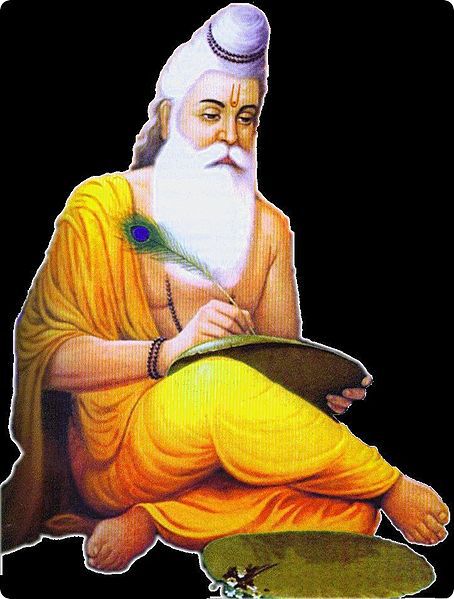By Upendra Mishra
What I like most about Yoga Vashishtha is that it teaches us to take responsibility for our actions, fortunes or misfortunes. The teaching method is simple through modest stories and through a process of rigorous reasoning and logic.
There are about 100 stories in Yoga Vashisth, and gist and message of all of them is the same: KNOW YOUSELF, TAKE RESPONSIBILITY FOR YOUR LIFE and DON’T BLAME OTHERS. Once we know ourselves, we start to see ourselves in other people and feel that we all are the same–male-female, black-white-brown-yellow, rich-poor, handsome-ugly, slim-flat; or in short any divide or conflict just disappears.

We start connecting with each other and feel that we all are the same at its core. Some call it Brahma, some Christ, some Mohammad, some God, some pure Nature, and some Evolution. But they all refer to the same core being, the core essence, which we all are.
We are the ultimate reality, we are the creator of our own destiny, and we are the Brahma or the Supreme Being. The Brahma does not live in temples, mosques or churches but within us. The world outside us is nothing but the reflection of our own thoughts, beliefs and feelings. We see the world and people exactly the way we are.
I remember as Sufi story I had read many years ago. A man entered a village and went to see the Sufi Master. The visitor said: “I’m deciding whether I should move here or not – and I’m wondering what the people here are like?”
The Sufi Master said: “Tell me, what kind of people live where you come from” The visitor said: “They were robbers, cheats and liars.” The Sufi Master said “You know, those are exactly the same kind of people who live here.” The visitor left and never came back.
Another visitor entered the village and asked the same question of the Sufi Master: “I am thinking of moving here – can you tell me what the people are like?” Again the Sufi Master asked: “Tell me, what kind of people live where you come from?” The visitor said: “Oh, they are the kindest, gentlest, most compassionate, loving people. I shall miss them terribly.” The Sufi Master said: “Those are exactly the kinds of people who live here too.”
But to realize such wisdom, we must continue to self-reflect, focus on ourselves and questioni ourselves: Am I really the smartest and coolest person? Do I always do the right thing? Do I really treat everyone equally? Am I really fair all the time to all people? Once we start to ponder on these questions, many of us are surprised by our honest answers; and we realize that we’re not much different from the persons we hate the most. In the essence, we all are the same.
 How do we reach this state of mind?
How do we reach this state of mind?
Sage Vashishtha says we must do four things:
(1) Self-control or quietness of mind,
(2) We should have a spirit of enquiry,
(3) We must be content, and
(4) We should always be in a good company.
“When the mind is at peace, pure, tranquil, free from delusion or hallucination, untangled and free from cravings, it does not long for anything nor does it reject anything. This is self-control or conquest of mind,” says Vashishtha. “Self-control, O Rama, is the best remedy for all physical and mental ills. When there is self- control, even the food you eat tastes better, else it tastes bitter. He who wears the armor of self- control is not harmed by sorrow. He who even while hearing, touching, seeing, smelling and tasting what is regarded as pleasant and unpleasant, is neither elated nor depressed — he is self-controlled. He who looks upon all beings with equal vision, having brought under control the sensations of pleasure and pain, is self-controlled. He who though living amongst all is unaffected by them, neither feels elated nor hates, even as one is during sleep — he is self-controlled.”
After the self-control, follows the kingdom of inquiry. “The wise man regards strength, intellect, efficiency and timely action as the fruits of inquiry. Indeed kingdom, prosperity, enjoyment, as well as final liberation, are all the fruits of inquiry. The spirit of inquiry protects one from the calamities that befall the unthinking fool,” says Vashishtha . “Knowledge of truth arises from such inquiry; from such knowledge there follows tranquility in oneself; and then there arises the supreme peace in the Self and the ending of all sorrow.” And then comes contentment: “He who has quaffed the nectar of contentment does not relish craving for sense-pleasures; no delight in this world is as sweet as contentment which destroys all sins…With the rise of contentment the purity of one’s heart blooms.”
And lastly, adds Vashishtha, satsanga, or the company of wise is important. “Whatever be the cost, however difficult it may be, whatever obstacles may stand in its way, satsanga should never be neglected.” “If you are unable to resort to all these four, then practice one: by the diligent practice of one of these, the others will also be found in you. The highest wisdom will seek you of its own accord. Until you tame the wild elephant of your mind with the help of these noble qualities, you cannot have progress towards the supreme, even if you become a god, demi-god or a tree. Therefore, O Rama, strive by all means to cultivate these noble qualities.”
(Mr. Mishra is managing partner of the Waltham, MA-based integrated inbound marketing and PR firm The Mishra Group. He writes about his three passions: marketing, scriptures and gardening.)
















